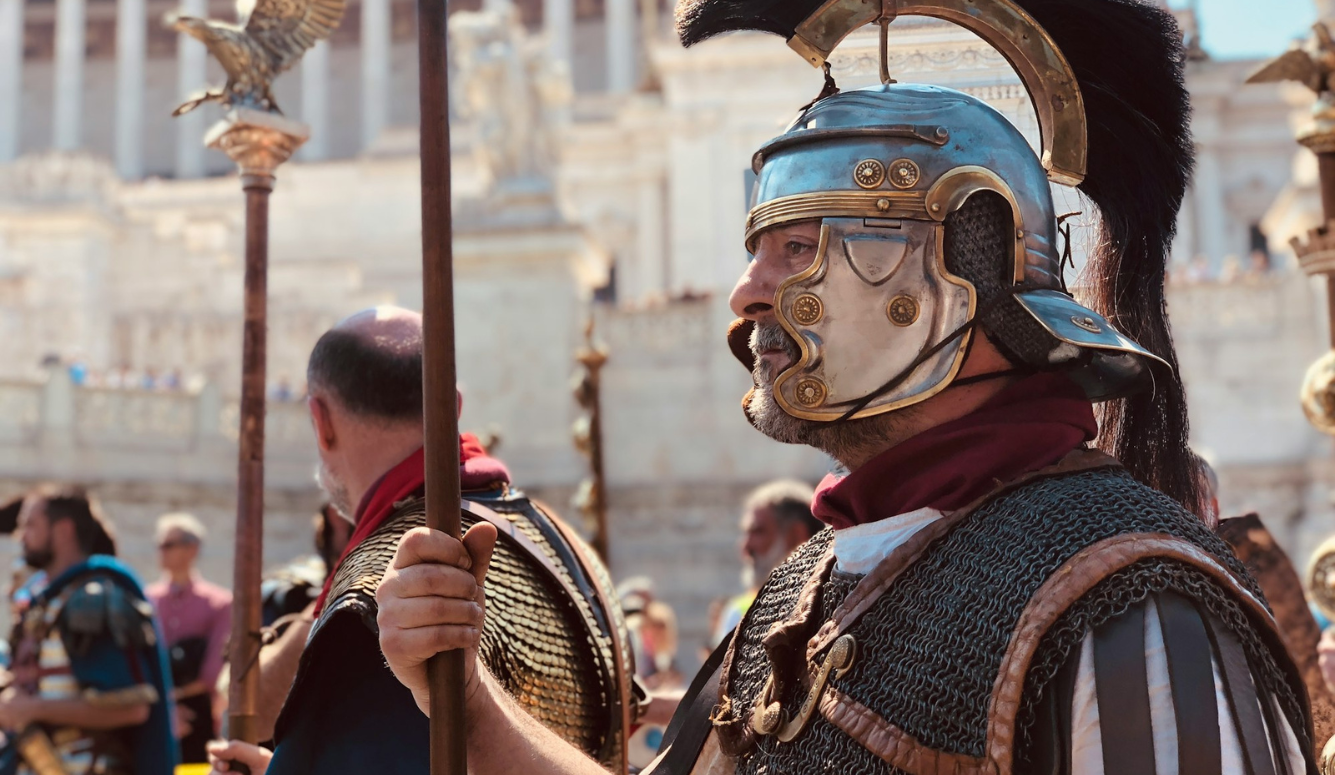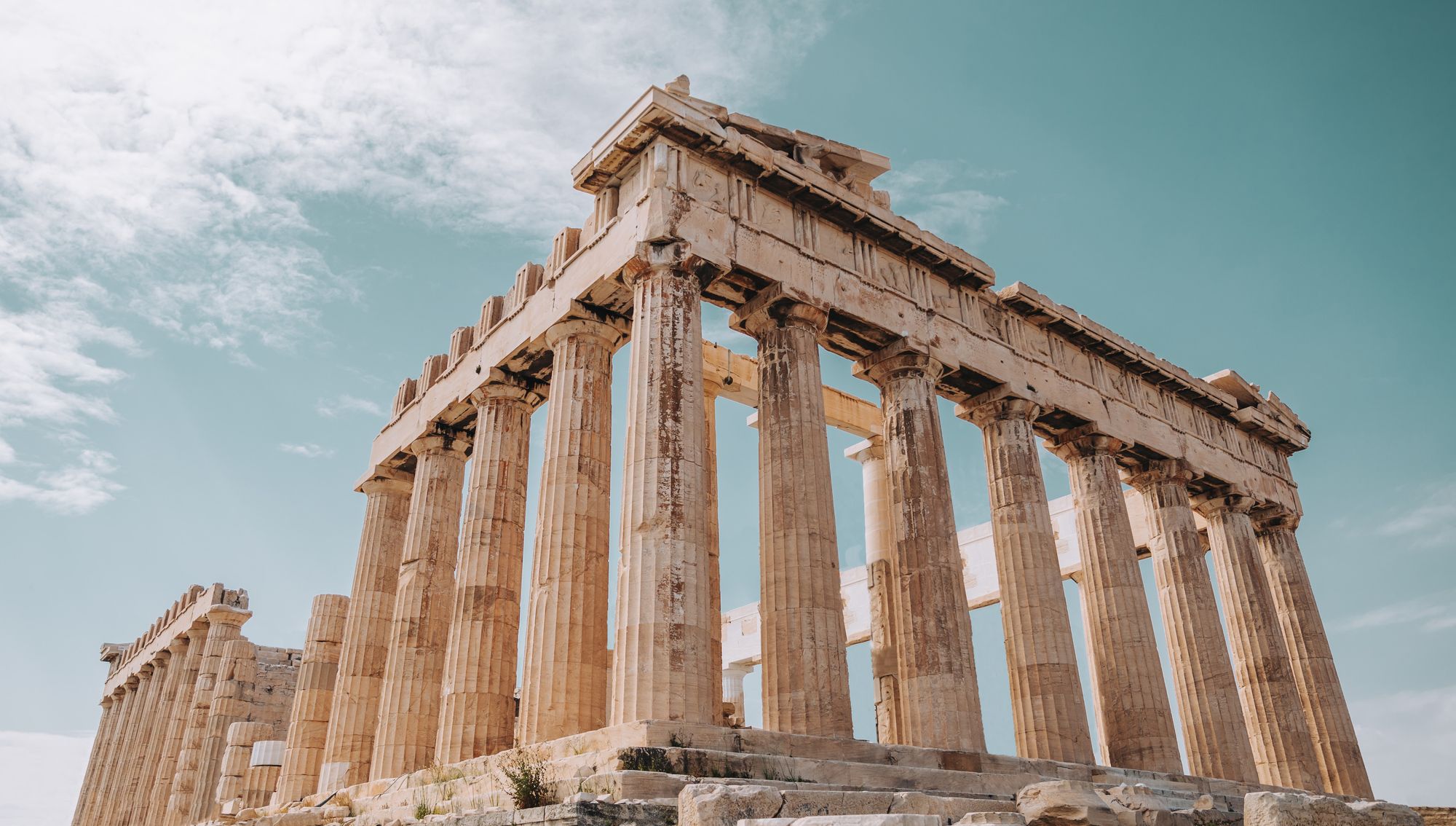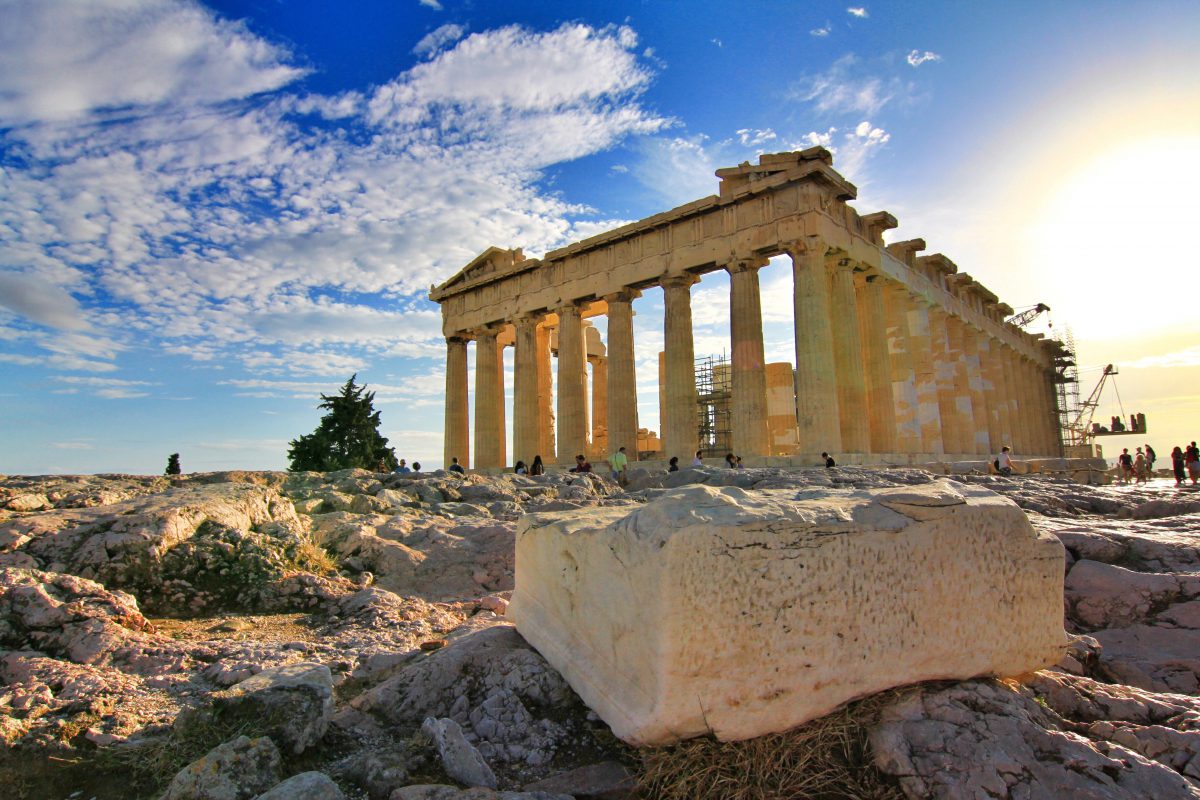classics
The Male Obsession with Ancient Rome
We are all Rome’s children. Its legacy is everywhere we look.

A new meme has emerged over recent weeks, in which women confess their surprise about how often the men in their lives think about the Roman Empire. The reels, images and videos on this theme have proliferated so much that the story has been covered by Time, the Washington Post, the New York Post, the Independent, and so on—or etcetera, as the Romans would have put it.
I have an excuse for my own obsession: I started learning Latin when I was eleven and carried on doing so until I was twenty-two, acquiring a degree in Classics along the way. But educations such as mine, which were a marker of status for so long, have become increasingly uncommon. This year, students in England and Wales took 806,410 A-levels (final exams taken at age 18 by school-leavers). Classical subjects (Latin, Ancient Greek, and Classical Civilisation) accounted for fewer than 6,000 of them, less than 1%.
But despite this, it would be strange if Rome did not continue to interest us, for whether its rule ended 600 or 1,600 years ago (it depends on whether you include Byzantium), its culture lives on. This article is written in Latin letters in a language that owes a heavy debt to the Roman tongue. The list of Latin-derived words and phrases in English extends ad nauseam and almost ad infinitum. Since the time of Palladio, our ideas of architectural beauty have been heavily influenced by those of the Romans. If we found ourselves in ancient Rome, it would smell very different to the modern world—we’d probably find it rather unpleasant—but we would hear familiar words and see familiar sights. A trip to a city such as Rome’s approximate contemporary Teotihuacan in Mexico, by contrast, would be a far more alien experience for someone from the modern West.

Rome is also omnipresent in the stories we tell ourselves about our past. It is the Emperor Augustus who orders the census that sets the action of childhood nativity plays in motion. Few, if any, of the Asterix books would be meaningful without the eponymous hero’s Roman foes. My eight-year-old daughter learned at school that her Scottish ancestors wore animal skins and painted themselves blue, while the Romans wore “sexy” dresses even if they ate dormice.
These stories point to one explanation for Rome’s enduring popularity. In countries like Britain and France, Rome was a powerful, attractive, and ultimately successful invader that subjugated and subsumed our ancestors. Its grandeur contrasted with the relative unsophistication of our forebears. Asterix and his Gauls live in a small village, comprised of huts. The Romans live in a mighty city, with all the benefits of civilization. They appear far more glamorous than their contemporaries, almost modern in the way they live their lives.
This notion of sophisticated Romans and uncivilised subjects has considerable cultural power. In the famous Monty Python sketch from Life of Brian that asks “What have the Romans ever done for us?” the answers are legion and every innovation the Romans have brought to Judaea made life better. In contrast to more recent colonialists, whose sins their modern descendants are quick to castigate, Roman imperialism is often seen by the distant heirs of those who suffered it as an unalloyed good.
Interestingly, the Romans themselves took a more nuanced view: “Solitudinem faciunt, pacem appellant” (“They make a desert and call it peace”) the historian Tacitus has the conquered Scottish chieftain, Calgacus, say. There are certainly good reasons to question how beneficial Roman colonialism was. It is difficult to know the details of contemporary economics at such a remove, but it is estimated that GDP per capita in large swathes of the empire was the equivalent of less than $500 per annum (in 2000 dollars), a level that would place the empire in the world’s bottom four countries today. Even Italy, the empire’s most prosperous region, would only rank as the 176th richest country in the modern world, just surpassing the $2.15 per day level which today marks “absolute poverty.” Rome may have been grand, but it was not rich.
Nor was its wealth equally distributed. When we read of emperors or senators attending ostentatious banquets, we need to remember that they were a tiny stratum at the very pinnacle of society. For every grand villa in the capital whose ruins and mosaics have survived to the present day, there were many more insulae: rickety wooden apartment blocks into which the plebs were crammed. These were so prone to catch fire that Romans usually ate out, as cooking at home was just too risky.
In part, our belief in Rome’s glamour derives from the stories we tell about it. Gladiator is the fictional tale of a feud between an emperor and a general; HBO’s Rome relates the story of the Roman Civil War, an intra-elite conflict over how, and by whom, the empire was to be ruled. By necessity, these stories are set in rarefied circles but they reflect what we know of the time. Roman literature was written by the elite for the elite and thus reflected elite concerns. Petronius, whose Cena Trimalchionis—the story of a banquet hosted by a wealthy freedman—did much to shape our views of Roman extravagance, was himself a consul and intimate of the Emperor Nero. He might well have attended the type of event he lampooned, but very few of his fellow citizens did.
The voices of many of those with whom he shared the city are completely absent from the literary record. There is, for example, no surviving piece of writing by a slave. Even the most prominent works ascribed to a former slave, The Discourses and Encheiridion of Epictetus, are, in reality, the lecture notes of a Greek aristocrat who would go on to become a senator and consul. The earliest extant example of female writing dates to about 100 AD, 850 years after Rome’s mythical founding. Basing our view of life in Rome on the published sources, as by necessity we must, is akin to explaining twenty-first-century America through the words of male Hollywood A-listers.

If the sources give us an incomplete picture of broader society, in this they parallel some of its underlying realities. The absence of women in the record reflects the absence of women in Roman public life. Some high-born women could become priestesses (for example, the Vestal Virgins), but none could hold political office. They were under the formal control of first their fathers and then (in some periods) their husbands. Though they had more freedom than some of their contemporaries such as the Greeks, their liberties were still highly restricted. Society expected (and allowed) women to be nothing more than loyal wives and good mothers. A very few, such as Livia and Agrippina, managed to attain influence, but only as the power behind the throne, power exercised through their husbands—the Emperors Augustus and Claudius, respectively—and such machinations did not generally end well. (Agrippina arranged her son Nero’s ascension to the throne, only to be put to death on his orders.) If modern women think less frequently of Rome than men do, that may well be because it has less to offer them. A modern man can daydream of being a powerful, victorious Roman leader carving his name into history through deeds of martial glory but the best a woman could have hoped for was to be such a leader’s wife.
If our view of the lives of Roman women is realistic but unattractive, our view of Roman men is often attractive, but unrealistic. Not only do we rarely think of the urban poor, reliant on the corn dole to survive, or of slaves, the property of their masters, to be disposed of as the latter wished, but we see Roman history as a parade of heroes—Scipio, Pompey, Caesar, Augustus—powerful men who bent history to their will. In this, we follow the ancients themselves, who were far more prone to the great man theory of history than we are—partly due to their use of it as a source of inspiring and improving examples, partly because they had no other way of understanding it. Paul Kennedy was able to comb centuries of economic data to develop the thesis outlined in The Rise and Fall of the Great Powers. The Romans were not able to access such information. They did not even collect it.
But in part, our romanticised view of Rome reflects a key problem of ancient historiography: that those who wrote history often had close personal relationships with those who made history. A few writers did attempt to use structural factors to make sense of events—like Thucydides, the Greek, who saw the Peloponnesian War as an inevitable struggle between an established and a rising power—but even these writers were personally involved in those events and knew the key players. (Thucydides failed to prevent the capture of Amphipolis by the Spartan general Brasidas and is often accused of inflating the prowess of his foe in his writing, as a way of justifying his own failure).

The historian Polybius, an indispensable source of knowledge about Rome’s rise to power, was a Greek noble, originally taken to the city as a hostage. He hobnobbed with the upper classes, was appointed tutor to Scipio Aemilianus and later accompanied his charge as he sacked Carthage. How objective can we expect him to be about his pupil? Despite his provincial origins, the historian Livy became personally acquainted with Augustus. His work is full of stirring stories of Roman derring-do in service to the regime’s desire for inspiring propaganda. These tales may bear little relation to actual events. Josephus, the Jewish author of The Jewish War, formed such a close relationship with Vespasian and Titus, the father and son generals who won that war for Rome, that on Vespasian’s ascension to the purple, he was granted Roman citizenship, adopted the generals’ family name (Flavius), and was given an estate and pension. Should we expect him to paint his friends in a negative light?
Some historians were aware of this propensity for bias. Tacitus starts his Annales with a promise to write “sine ira et studio” (“without fear or favour”), his distance in time from the events described supposedly adding objectivity to his narrative. However, for centuries readers have asked whether he achieved this objectivity, particularly with regard to his unremittingly hostile portrait of Tiberius. He was not involved in the events he describes but could the animus of a second-century senator towards an emperor known to have executed several first-century senators have led him to inflate his target into an almost cartoonish supervillain?
There obviously were great Romans. Battles need generals to win them, and empires need emperors to rule them. But Roman history was not purely the work of great men. That may make for a good story, but there is a danger that the absence of evidence and the potential biases of our extant sources may have seduced us into believing an account of events that is more hagiography than history.
While our view of Rome is likely to be inaccurate in at least some respects, our fascination with it is understandable and far from unique. Since the rediscovery of Roman texts in the Renaissance, the story of its growth from Italian town to mistress of almost all the known world has exerted a pull on the Western mind. It moved Shakespeare to write and David to paint. It has inspired both revolutionaries like America’s founders, and assassins—when John Wilkes Booth cried “Sic semper tyrannis,” he was quoting either Lucius Junius Brutus or Scipio Aemilianus. Roman history has been a readily available source of metaphor and comparison, long enough and eventful enough to supply an analogy to almost every contemporary occurrence. Since the Renaissance, it has not been at all strange to think of Rome a lot. Rather, it would be strange not to.
For we are all Rome’s children. Its legacy is everywhere we look, from the fasces carved on the Lincoln Memorial, to the Senates of America, France, and Australia, to the calendar we use and to the laws we obey. And children want to know their parents.
This essay is dedicated to Peter Derow, late Fellow and Tutor in Ancient History at Wadham College, Oxford, without whose gentle instruction its author’s views on Rome would be far less nuanced. Ave atque Vale.






